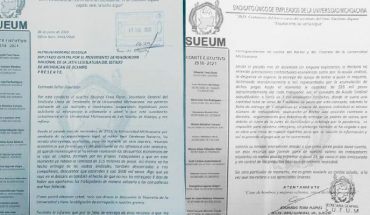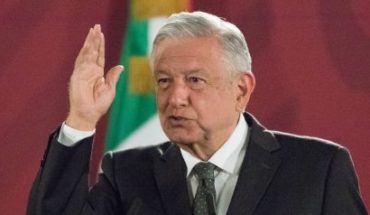
The Constitutional Convention, after 3 and a half days, dispatched its General Regulations. The work is not finished, because other regulations, such as popular participation, have yet to be defined. In this, one of the issues that was approved – as a concept and not necessarily as an official indication – will be defined this Wednesday: the holding of settling plebiscites, which if approved, will require a constitutional reform.
On this subject, the conventional Agustín Squella referred in conversation with El Mostrador in La Clave. “That is going to happen in part, of course, we will have to continue talking within the convention. When a heterogeneous human, and which is good that it is so in the convention, is not able, let’s say, to reach an agreement for the quorum that is needed, you do not have to despair, you do not have to certify that you have failed, you have to resume the conversation endlessly, “he said.
“If they are not matters proper to a Constitution, because there is going to be a tendency – in fact there is already explicit – to place in the Constitution matters that really do not have to be in the Constitution, but in ordinary common legislation, when disagreements fall on matters like that, the effect is not serious, because it is simply outside the Constitution. But being outside the Constitution, they really remain where they should be, that is, in the hands of future legislators or in the hands of public policies of future governments,” he added.
The problem, according to Squella, will occur if “two-thirds are not achieved with respect to matters that should be in the Constitution in any case. So I insist, since we cannot afford to propose to the country a Constitution that has gaps or loopholes because we were not able to agree, we are going to have to seek that agreement without resorting, I think, to the direct plebiscites. The direct or intermediate plebiscites, so that it is the citizens who settle disagreements that we have not been able to untie within the Convention, without prejudice to the need for a constitutional reform, because the Conversion cannot call a plebiscite by itself, would have to be authorized by a constitutional reform that seems quite unlikely; without prejudice to that, the direct plebiscites, I imagine that they could be understood by the citizens without the sympathy that one thinks would look at them.”
“Because of course you say ‘what better than to ask the people’, yes, but the people, the citizens, put in the hands of 155 constituents who agreed. So it might seem like the Convention is not capable, it does not know what to do with the ball, let’s say, on the playing field, it is returned to the citizen, it is returned to the citizens. It is good to consult the citizens, but also this, in a year in which there have been so many elections and so many ahead, in a year that we no longer have a year, much more, a fierce pandemic with the effects that we all know. I wonder what the citizens will want that every time the constituents do not know what to do with the ball, that is, we do not know how to agree, we give it to them, will they really agree? I think that the citizens rather what they are crying out to us is gentlemen, agree at once,” he said.
“A Constitution, which would have to be filled after the exit plebiscite, pronounces on the new Constitution, would be a Constitution that would then suffer from loopholes. It could be completed in the future. But of course, if the proposal for a New Constitution contains more than one vacuum and in important matters, what risks is very serious, that the plebiscite of exit of the citizenship says ‘unfortunately we are not going to approve this Constitution that the Convention has proposed to us because it is too incomplete to ratify it as a Constitution’. It is very serious to what we expose ourselves to if we leave many gaps, we must not leave gaps and that is why the formula will be, even if it is overwhelming, to return to the issues again and again. Look, there will also be, of course, modalities of popular participation to which the Convention is going to make use and in fact, it has already used it in the preparation of the regulations that we talked about earlier, modalities of popular participation that can also give us many lights regarding. different from the direct plebiscites, which can give us many lights of how to untie knots that we can not untie between we. Look, whether through three, four or five modalities of popular participation, from public hearing, from citizen consultation that are not properly plebiscite, and in short, others, those modalities of participation could be achieved, if they coincide in what they propose, exert a kind of pressure in the good sense of the word, so that we resolve disagreements in favor of what the citizens through those modalities were telling us perfect, ” closed this topic.
To avoid plebiscites, Squella said the conventional ones will have to strive to “reach that high quorum to approve constitutional norms. In the case of many norms, it will probably be easy, because in truth when one enters the substantive issue, which is which norms to approve, I think we will realize that we have in not a few aspects of the new Constitution quite a lot of agreement, as well as in others that I hope will be the least, quite a few sharp disagreements. But we will have to do our best. That is what the citizens asked of us. Look, propose a Constitution, that was what the citizens said in the approval plebiscite. And propose us is a constitutional text supported by two-thirds of a Convention within which there is a lot of diversity. You know, we all know that groups have been formed within the Convention. And I think that what is happening at the moment, and the vote on the General Regulations made it clear, is that some groups without losing their identity and have been beginning to talk with other groups for a long time and to establish meeting zones, identification of affinities, and so on. For example, there is a group of the Approve, there is a group of non-neutral independents, Independents for a New Constitution are called now, there is a socialist collective, there is a collective of the Broad Front. And I think there is a permanent conversation there that can be reflected well and influence the search for two thirds. And look, it’s not that these four groups are going to constitute a bloc. No, each group has its identity, but there is closeness, there is proximity and I believe that at the time of the votes, part of Vamos por Chile I am sure will agree with not a few of the constitutional proposals that arise from the four groups that I have just identified. I say part because Vamos por Chile is not homogeneous within the convention either, there is a sector of the UDI, there is a sector of National Renewal, there is a sector of Evópoli, they have their differences”.
In that line, he gave names on the right that are prone to dialogue: “I think of a person like Raúl Célis, who I know because we are from the same district, was a student, a student of mine and then colleagues at the University of Valparaíso Law School. I think of Hernán Larraín, who I also know. Cristián Monckeberg is very open. They are people of the right – let’s avoid that word, because I do not use it pejoratively, but descriptively – but people of the right who long ago, not only now, understood that the country changed and that the demands of today are different and that issues that were left uns satisfied in the past, today it would be unforgivable and extremely politically irresponsible not to attend to it. So I see in them willingness, openness and above all something that sometimes the right has not had: understanding the exact political and social moment that the country is experiencing.”





